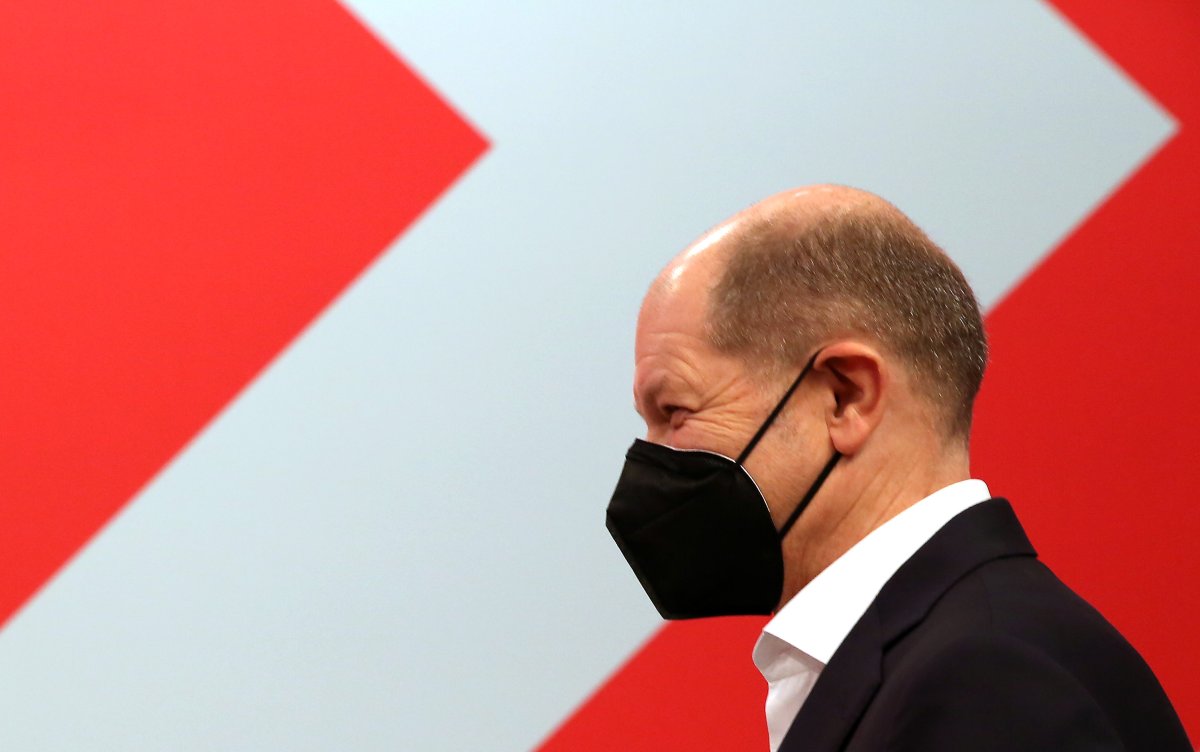Last week marked the end of an era as the new German government, led by the Social Democrats' (SPD) Olaf Scholz, was sworn in to office. For 16 years, Angela Merkel's Christian Democrats (CDU) had held the highest office in the country.
Scholz's electoral victory over Merkel back in September may have been narrow, but the SPD leader was able to form a political alliance with two smaller coalition parties, the Greens and the Free Democrats (FDP). The coalition deal was the result of two months of vigorous negotiations between the parties that have a substantial majority in the German federal parliament, the Bundestag.
While each of the parties overwhelmingly approved the deal, it would be foolish to expect a smooth ride going forward.
The implementation of climate policies could well become a weak point for the new political alliance. On this issue, the Greens and the FDP clash—big time. Both parties are in favor of protecting the environment but their preferred methods for doing so greatly differ.
What the Greens want are tougher environmental laws. On the other side of the spectrum, the FDP is a strong supporter of neoliberal market-based policies. Scholz's government will be faced with a dilemma: to regulate or not to regulate?
Even with a coalition deal in place, the Greens and the FDP will both need to make plenty of compromises when it comes to the implementation and financing of the brand-new coalition's climate ambitions.
Germany's addiction to fossil fuels was one of the Merkel administration's blind spots. The former environment minister may have been nicknamed the "climate chancellor" for her efforts to combat the climate crisis internationally, but her domestic gains were restricted by the German car and coal industries.
However, with the Greens now the second-largest coalition party, there is reason to believe this addiction may soon be history.
The Greens included some rather ambitious climate commitments in the coalition agreement—commitments that would never have seen the light of day if Merkel's CDU were still in office.
One is a pledge to transition the country to 80 percent renewable energy—twice as much as the current percentage—by 2030. Considering Germany is still behind many European countries in terms of its renewable energy uptake, this would be a massive, if difficult, step forward.

Furthermore, the German government has promised to "ideally" phase out coal by 2030 and to increase the total number of electric cars in the country to 15 million. Yet the decarbonization of the transport sector may face some resistance from the German public. A recent survey, conducted in 22 countries, finds Germans the most cynical when it comes to electric cars.
Unions may also have a role to play. In Germany, unions are protecting hundreds of thousands of workers in the automotive sector. They fear that electrification—if not done with caution—may lead to the loss of tens of thousands of jobs.
The transport sector could also slow down the country's overall climate ambitions. It's the only major industry that has failed to reduce greenhouse-gas emissions since 1990.
A plausible solution is biofuels, which could assist the move away from harmful fossil fuels. One alternative biofuel comes from Malaysia, where the national MSPO palm oil sustainability scheme has ensured that 93 percent of all produced palm oil meets strict environmental criteria.
With the Malaysian government issuing fines for noncompliant producers, the scheme serves as an interesting case study in what future biofuels may look like. For Western countries hoping to decarbonize their highest-polluting industries, biofuels could offer a sustainable solution.
That said, the German FDP has traditionally been seen as a party of men who enjoy driving fast cars—and it could slow down the coalition's decarbonization attempts. FDP politicians have vocally opposed speed limits on highways and may not be that keen to impose government limits on the sector.
This is where the two smaller coalition parties collide. The Greens are hoping to regulate dirty industries while the FDP wants to liberate them—at least to a certain extent.
In the end, the Greens lost the finance ministry position to the FDP's Christian Lindner, but managed to score other wins. The Greens' co-chair Annalena Baerbock leads the foreign ministry whilst the other co-chair of the party, Robert Habeck, will have control of the new ministry of economy and climate, and was named the vice chancellor.
The new cabinet includes seven ministers from the SDP, five from the Greens and four from the FDP. This alone gives the Greens significant leverage in government negotiations and makes possible a hard line on climate policies.
Germany is the largest economy in Europe and its politics will without a doubt leave a mark on the rest of the continent. Whether its new government can become the champion of European climate efforts will ultimately depend on how well the coalition forces resolve their disagreements.
Isabel Schatzschneider is an environmental activist and researcher specializing in food ethics, religious ethics and animal welfare. She is currently working as a Research Associate at the Friedrich-Alexander University Erlangen-Nüremberg.
The views expressed in this article are the writer's own.
Uncommon Knowledge
Newsweek is committed to challenging conventional wisdom and finding connections in the search for common ground.
Newsweek is committed to challenging conventional wisdom and finding connections in the search for common ground.
About the writer
To read how Newsweek uses AI as a newsroom tool, Click here.








